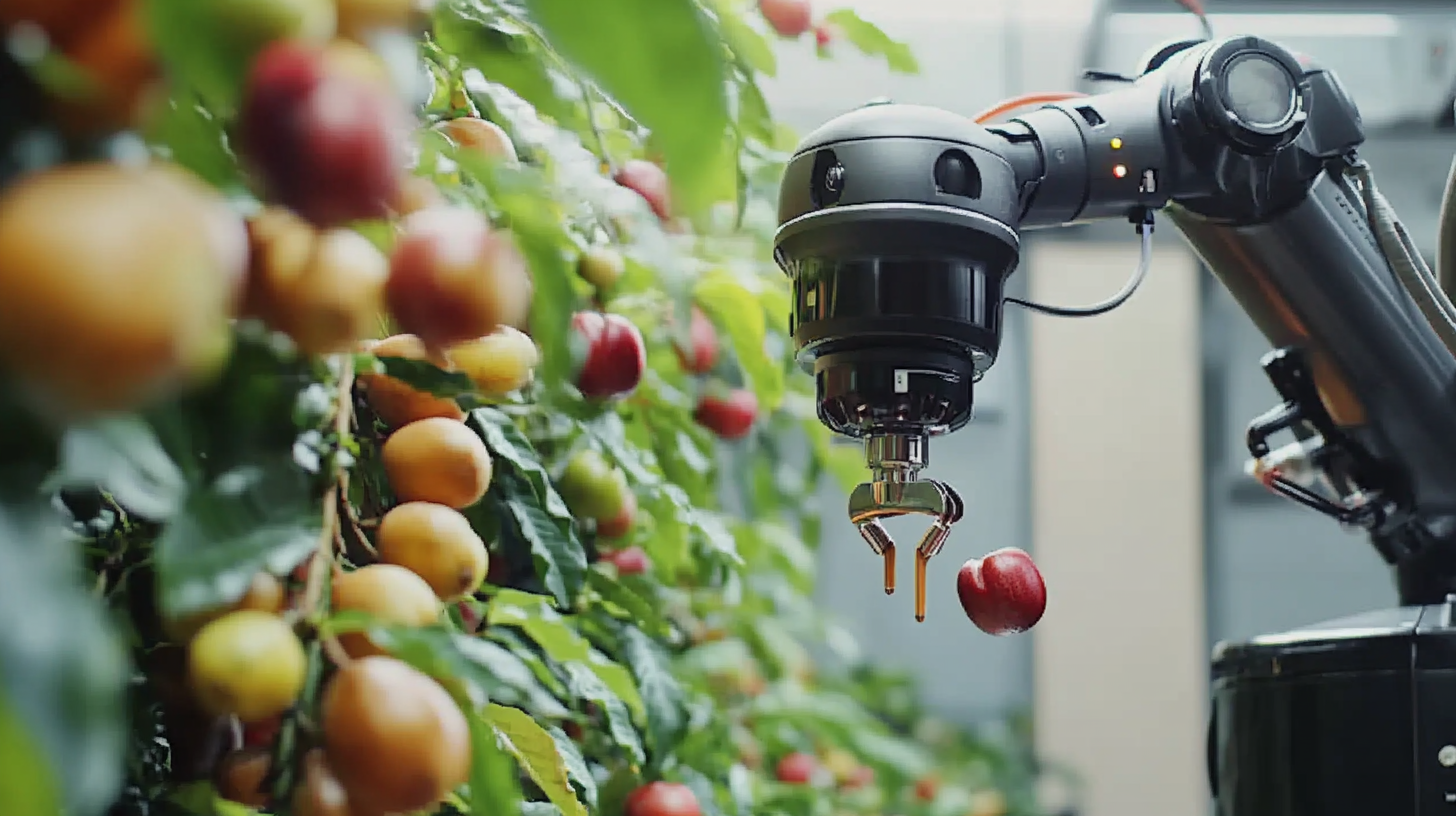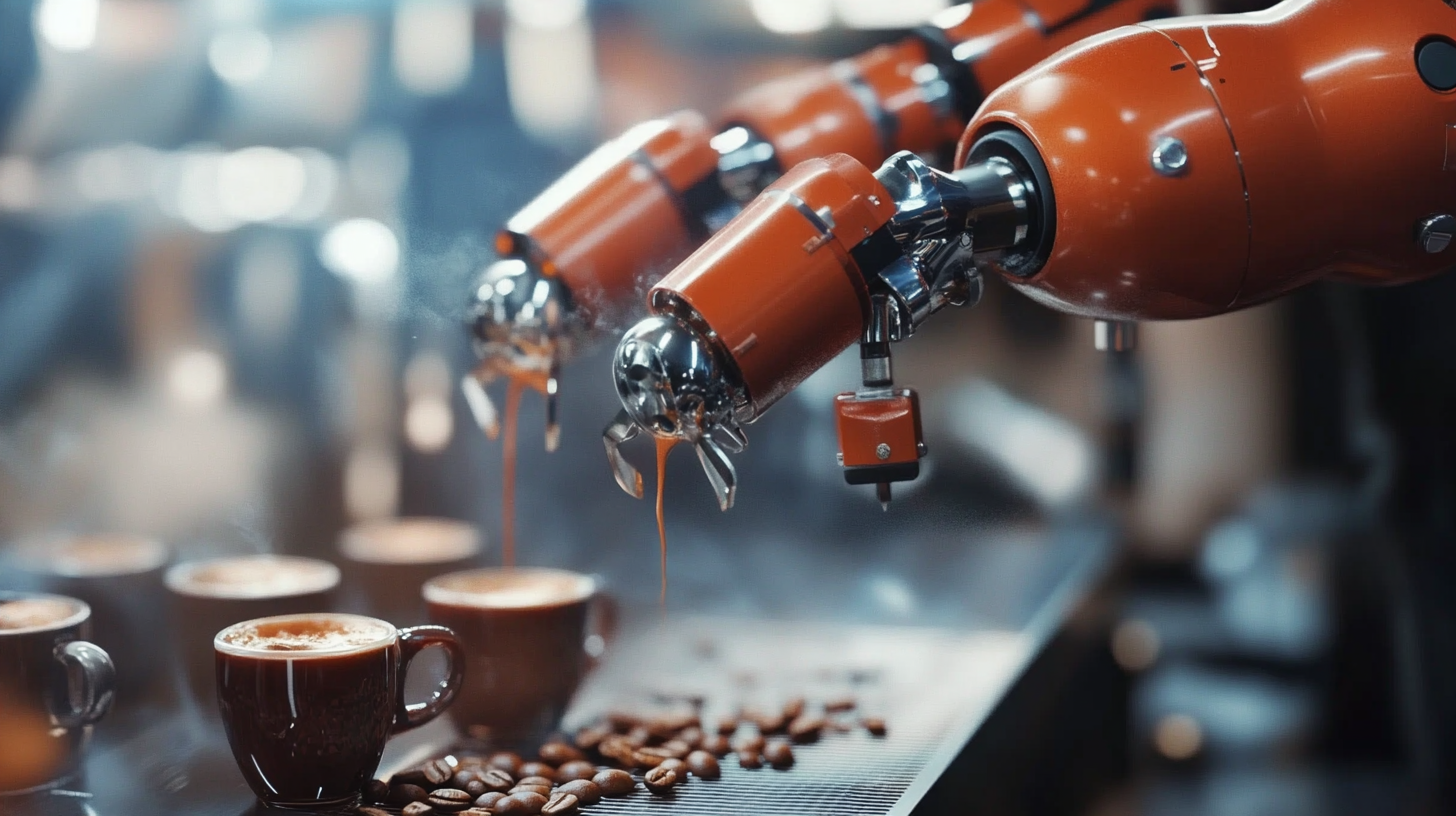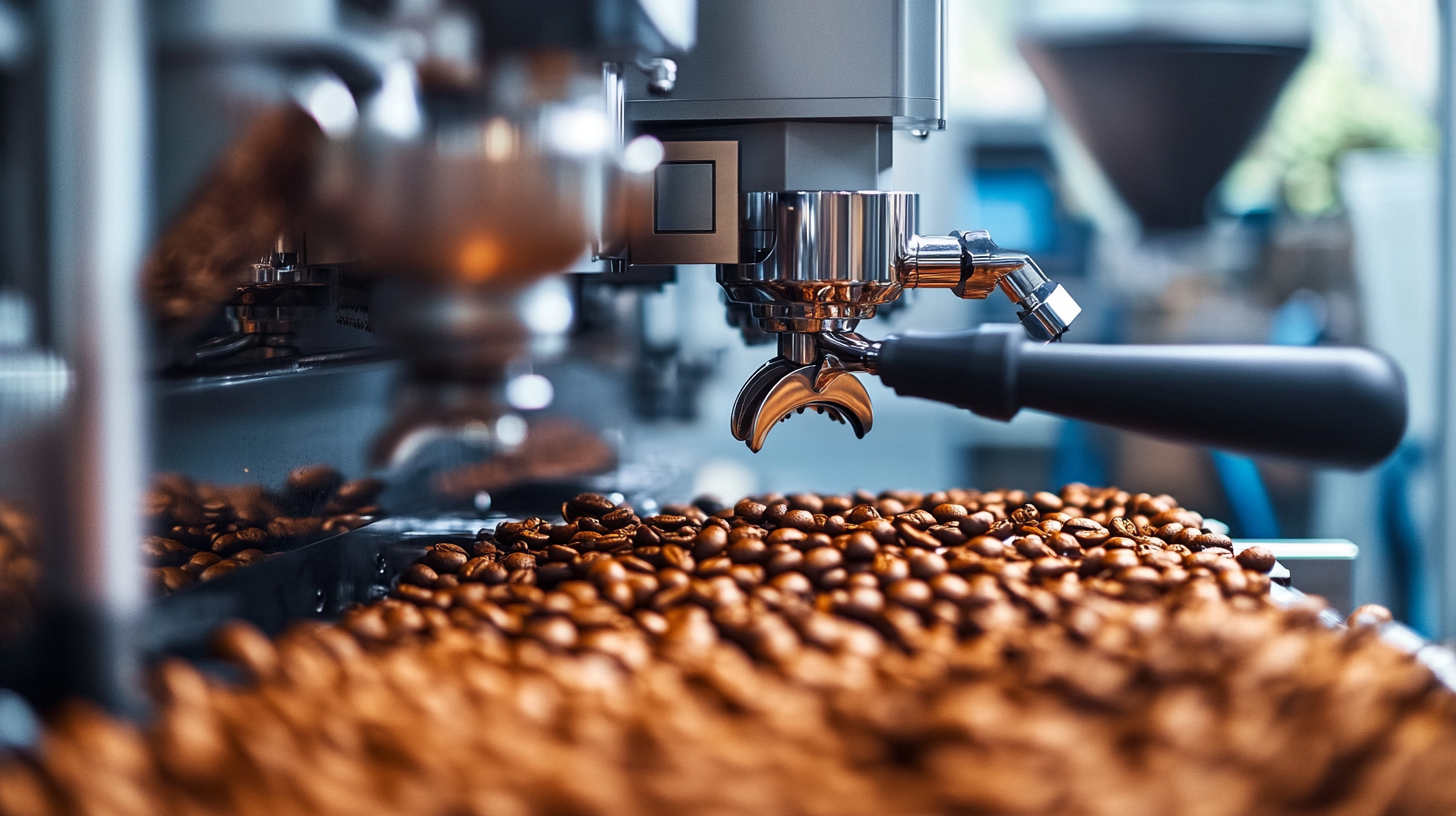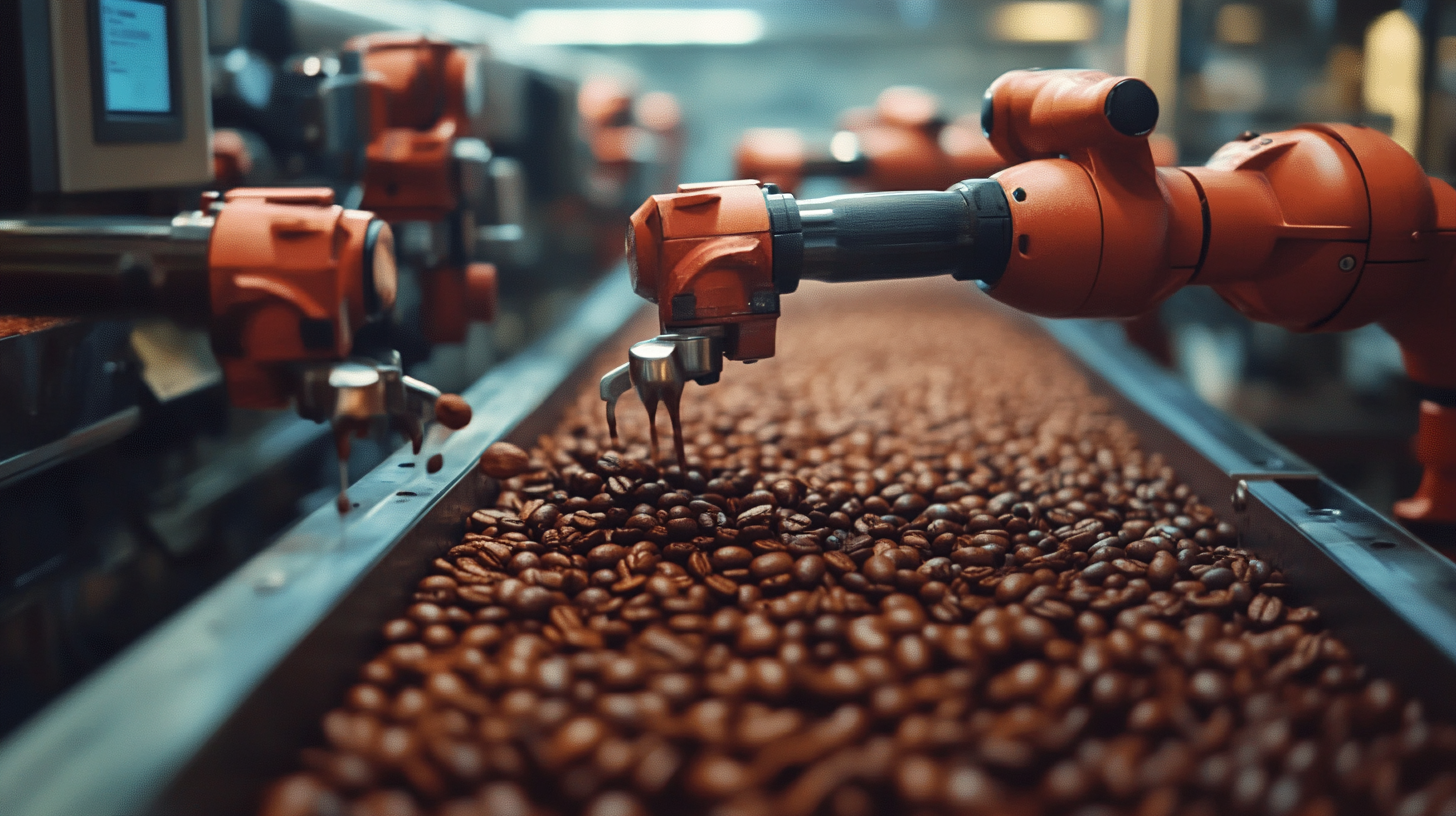

How Coffee Machine Robots Revolutionize Coffee Production: Insights & Innovations
In recent years, the coffee industry has witnessed remarkable advancements driven by technology, with one of the most revolutionary innovations being the Coffee Machine Robot. These automated systems are not only transforming the way coffee is brewed but also enhancing the overall efficiency of coffee production. As consumer demand for high-quality coffee continues to rise, the integration of robotics in this sector is proving to be a game-changer, allowing for precision, consistency, and speed that manual processes often struggle to achieve.
The emergence of Coffee Machine Robots represents a significant shift in the traditional coffee-making paradigm, pushing boundaries and redefining what is possible in coffee production. From sourcing and grinding beans to brewing and serving the perfect cup, these robots are equipped with advanced algorithms and cutting-edge technology that streamline operations and reduce human error. In this blog, we will delve into the insights and innovations behind Coffee Machine Robots, exploring how they are reshaping the coffee landscape and paving the way for a future where coffee production is not only efficient but also exceptionally satisfying for coffee lovers worldwide.

The Rise of Coffee Machine Robots in Modern Brewing Techniques
The emergence of coffee machine robots has transformed modern brewing techniques, allowing for unprecedented precision and efficiency in coffee production. These advanced machines are not just mere tools; they enhance the entire coffee-making process, from grinding the beans to brewing the perfect cup. With sensors that monitor temperature, pressure, and brew time, robotic coffee machines ensure consistency that is often hard to achieve manually, leading to a superior flavor profile that coffee aficionados crave. Moreover, the rise of automation in coffee production is catering to evolving consumer preferences. As people increasingly seek convenience without sacrificing quality, robotic baristas are stepping in to fill this demand. Imagine walking into a café where a robot creates your favorite espresso or latte, meticulously following your specifications for milk frothing and flavor intensity. This level of customization powered by technology not only delights customers but also streamlines operations for café owners, reducing wait times and minimizing human error. As the coffee industry continues to embrace these innovations, the integration of robotic systems promises to elevate the overall coffee experience. Not only does this juxtaposition of tradition and technology preserve the art of coffee-making, but it also opens up new avenues for experimentation and creativity. With continuous advancements in AI and machine learning, the future of coffee brewing looks tantalizingly bold and exciting.

Key Innovations Driving Efficiency in Coffee Production
In recent years, the coffee production industry has witnessed a remarkable transformation due to advancements in robotics technology. Key innovations in coffee machine robots are not only streamlining production processes but also significantly enhancing efficiency. According to a report from the International Coffee Organization (ICO), the global coffee consumption is expected to reach 180 million 60-kilogram bags by 2024. This escalating demand necessitates automation in farming and production systems, paving the way for coffee machine robots to play a crucial role.
One of the most impactful innovations is the integration of AI-driven robotics into the harvesting process. Precision harvesting machines, equipped with advanced sensors, can identify ripe coffee cherries with 90% accuracy, as highlighted in a recent study by the Food and Agricultural Organization (FAO). This level of precision minimizes waste and maximizes yield, allowing producers to increase their output without compromising quality. In fact, farms utilizing automated harvesting techniques report a productivity increase of up to 20%, showcasing the tangible benefits of these technologies.
Moreover, the incorporation of IoT (Internet of Things) in coffee production is enabling real-time monitoring of various stages, from planting to roasting. As stated in a market research report by Mordor Intelligence, the global coffee machine market is projected to grow at a CAGR of 12.5% through 2027, driven in part by the increasing use of connected devices. This connectivity ensures that growers and producers can make data-driven decisions quickly, improving supply chain efficiency and ultimately leading to better market responsiveness. The fusion of robotics and IoT represents a pivotal shift towards a more sustainable and productive future in coffee production.

How Automation Enhances Consistency in Coffee Quality
In today's coffee industry, automation has emerged as a crucial factor in enhancing the consistency of coffee quality. As coffee production scales up, the demand for uniformity and precision has led many roasters to embrace technology, integrating automated systems into their coffee roasting and brewing processes. According to industry reports, automated coffee machines can improve brewing consistency by up to 20%, significantly reducing the potential for human error that often affects the taste and quality of the final product.
Pour-over coffee, a brewing method celebrated for its craftsmanship and nuanced flavors, is also witnessing a transformation through automation. Coffee shops that adopt automated pour-over systems can not only streamline their operations but also ensure that each cup maintains the same high quality. A recent study indicated that cafes utilizing automated systems reported a 30% increase in customer satisfaction, largely due to reduced wait times and improved flavor profiles that consistently meet customer expectations.
Moreover, advancements in AI technology are now helping roasters monitor and adjust roasting profiles in real-time, ensuring that beans are roasted to perfection every time. This level of precision not only optimizes flavor extraction but also allows specialty coffee shops to enhance their overall customer experience. In fact, data shows that establishments that integrate automation in their processes experience a 25% boost in productivity, allowing baristas to focus on customer service while the machines manage the technical aspects of coffee brewing.
Ultimately, the integration of automation in coffee production is not merely about efficiency; it also redefines the role of the barista. With technology handling routine tasks, baristas can elevate their craft, focusing on artistry and customer interaction, thus creating a harmonious balance between tradition and innovation in the specialty coffee sector.

The Future of Coffee Production: Trends and Predictions in Robotic Technology
As the coffee industry continues to evolve, the integration of robotic technology is set to redefine the production landscape. Recent advancements highlight a surge in trends toward automation, enhancing efficiency and ensuring consistent quality in coffee production. The ability of robots to analyze and optimize processes using artificial intelligence has emerged as a game changer, promising not only improved yields but also personalized coffee experiences for consumers.
In a world where sustainability and innovation are paramount, robotics in coffee production is expected to streamline operations significantly. Leading voices in tech have emphasized the necessity for industries, including food and beverages, to adapt to new technological solutions. As experts predict a rise in AI-driven strategies, coffee production stands to benefit immensely from automated systems. This evolution is not just a trend but a response to ongoing challenges within the sector, encouraging the exploration of new methods and pathways for success.
Cities such as Shenzhen are making concerted efforts to foster their AI and robotics sectors, setting aside substantial resources to promote innovation. The advancements in humanoid robots, capable of performing specific tasks in production lines, signal that the industry is nearing a transformative phase. With the promise of personalizing coffee production and enhancing efficiency, the fusion of robotics and traditional techniques heralds a future that is both innovative and sustainable.
Impact of Coffee Machine Robots on Sustainability and Resource Management
The introduction of coffee machine robots marks a pivotal shift in the coffee production landscape, particularly concerning sustainability and resource management. These advanced machines streamline the brewing process, minimizing waste and optimizing the use of raw materials. With integrated sensors and AI technology, coffee machine robots can precisely measure the amount of coffee grounds and water needed for each brew, significantly reducing over-extraction and the associated waste of coffee.
Moreover, the deployment of these robotic systems not only enhances efficiency but also promotes sustainable practices throughout the supply chain. For instance, many coffee machine robots are designed to use energy-saving techniques, such as on-demand heating and programmable shut-off functions, which collectively lower energy consumption. This reduction in energy usage not only benefits coffee producers by lowering operational costs but also contributes to a smaller carbon footprint, aligning with global sustainability goals.
Additionally, coffee machine robots are revolutionizing resource management by ensuring better traceability of ingredients. Advanced tracking systems can monitor the origin and quality of coffee beans, allowing producers to make informed decisions that support sustainable sourcing practices. By focusing on ethical supply chains, these robots help foster a more responsible coffee industry that prioritizes environmental health and socio-economic equity. Through such innovations, coffee machine robots are not just transforming how coffee is made but also helping the planet thrive.
